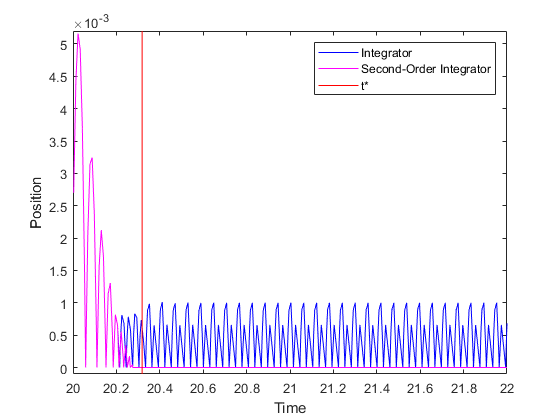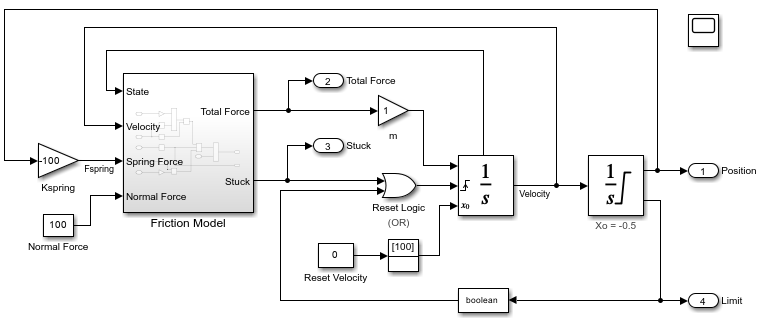IC
设置信号的初始值
库:
Simulink /
Signal Attributes
描述
IC 模块设置其输入端口的信号的初始条件,例如,仿真开始时 (tstart) 信号的值。为此,该模块在仿真开始时输出指定的初始条件,而不管输入信号的实际值为何。此后,该模块输出输入信号的实际值。
IC 模块用于为环路中的代数状态变量提供初始估计值。有关详细信息,请参阅代数环概念。
非零采样时间偏移量的行为
如果 IC 模块具有非零采样时间偏移量 (toffset),IC 模块将在时间 t 输出其初始值,
t = n * tperiod + toffset
其中 n 是满足 t ≥ tstart 的最小整数。
即,IC 模块在模块以采样时间 [tperiod, toffset] 第一次执行时(可以在 tstart 之后)输出其初始值。
示例
端口
输入
输出
参数
模块特性
数据类型 |
|
直接馈通 |
|
多维信号 |
|
可变大小信号 |
|
过零检测 |
|

